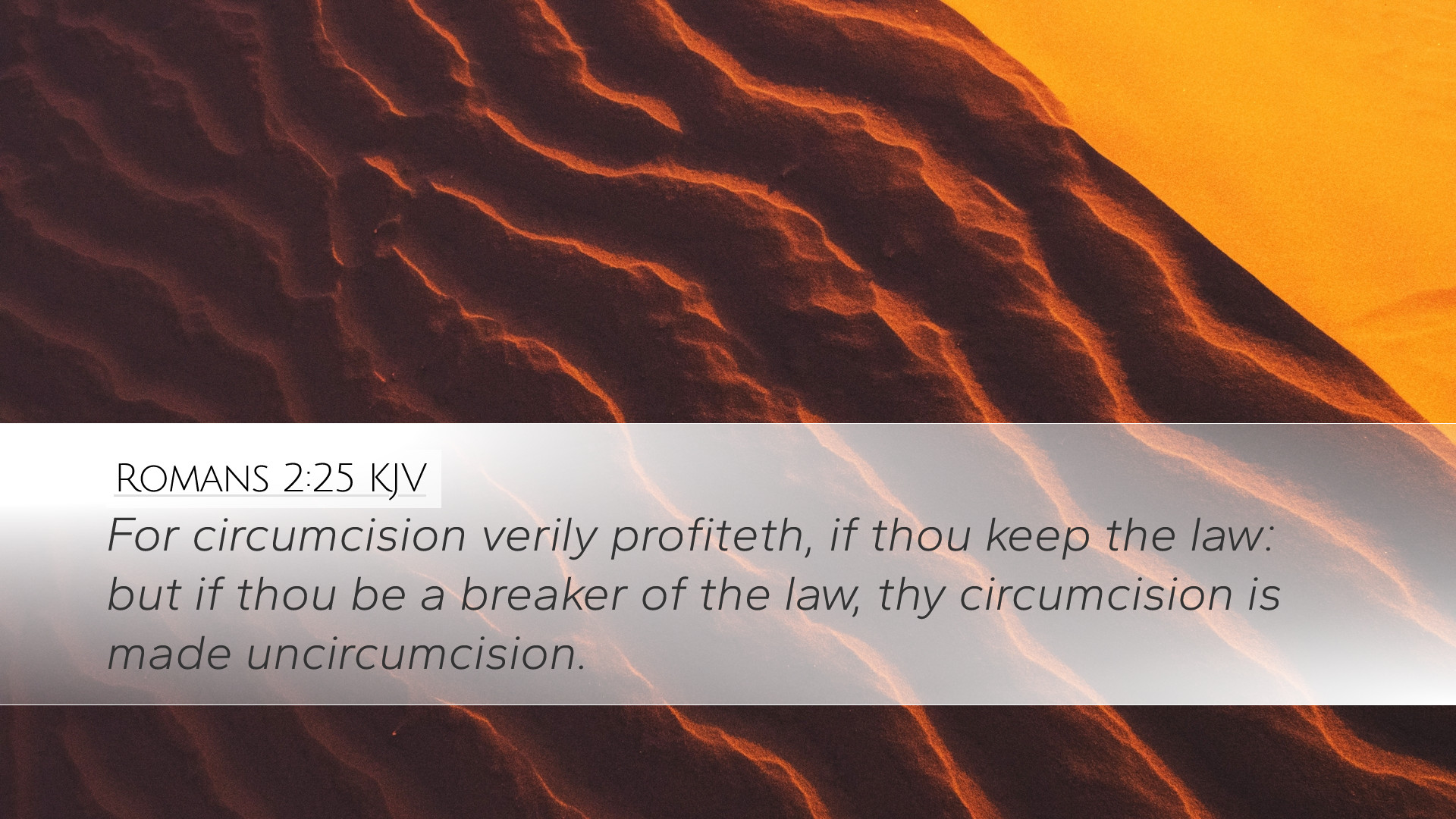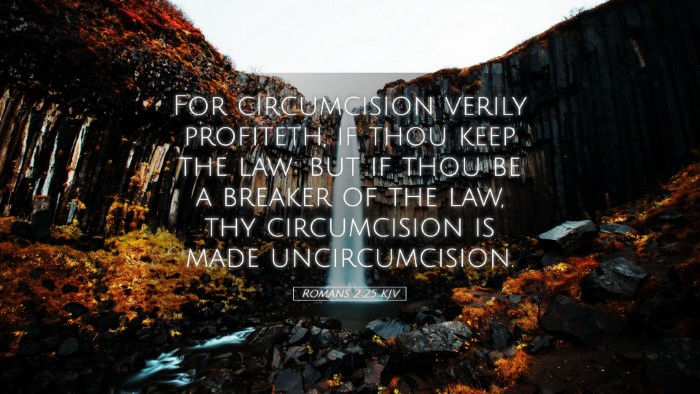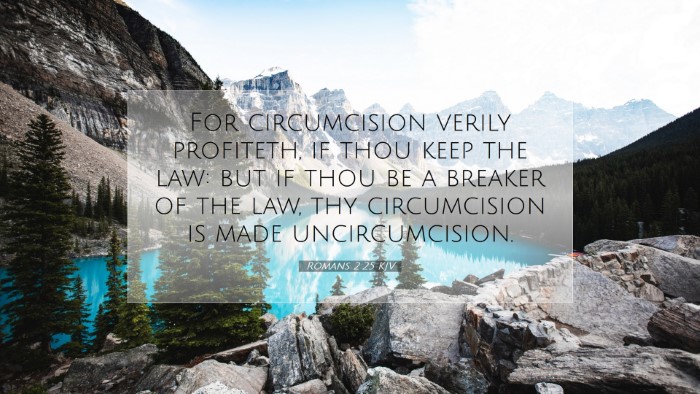Commentary on Romans 2:25
Verse: "For circumcision verily profiteth, if thou keep the law: but if thou be a breaker of the law, thy circumcision is made uncircumcision."
Introduction
In Romans 2:25, the Apostle Paul addresses the Jewish believers and their reliance on the law and the practice of circumcision as marks of their covenant relationship with God. This verse serves as a pivotal point in Paul's argument concerning the righteousness that God requires from all humans, irrespective of their heritage or background.
Contextual Analysis
Paul's argument in chapters 2 and 3 of Romans builds upon the foundation laid in chapter 1, where he outlines the universal sinfulness of humanity. After condemning Gentiles for their transgressions, he shifts his focus to the Jews, who may feel confident in their standing before God due to their covenant status.
Historical Significance
Circumcision was a sign of the covenant between God and Abraham, signifying that the bearer was part of God's chosen community. However, Paul challenges this notion by emphasizing that mere physical circumcision does not equate to spiritual fidelity or moral standing before God.
Commentary Insights
Matthew Henry's Commentary
Henry emphasizes the dual nature of circumcision, highlighting that it is advantageous only when accompanied by obedience to the law. He stresses that external rites or signs are meaningless if they do not reflect inner transformation and adherence to God's commands. As Henry puts it, “A great deal of outward religion can never excuse a neglect of the inward duty.”
Albert Barnes' Notes on the Bible
Barnes elaborates on the idea that while circumcision has its benefits, these are contingent upon the individual's behavior concerning the law. He argues that it is not enough to rely on rituals; one must embody the principles of the law through righteous living. Barnes contends that Jewish believers may have taken pride in their circumcision, but if they fail to keep the commandments, their status as "circumcised" becomes irrelevant and, in a sense, turns against them.
Adam Clarke's Commentary
Clarke provides an in-depth look at the theological implications of this verse. He believes that Paul underscores a fundamental truth: the value of a spiritual condition is predicated not on external signs but on the condition of one’s heart. Clarke suggests that true circumcision is a matter of the heart — a testimony of one's relationship with God rather than a mere physical act. He articulates that “the heart must be purified by faith for true circumcision.”
Spiritual and Theological Implications
Paul’s statement challenges both Jews and Gentiles in their approach to righteousness. He fundamentally alters the Jewish understanding of merit before God by positing that external adherence without internal transformation is insufficient. The implication is clear: a true relationship with God cannot be established merely through ritualistic practices but must be rooted in obedience and faith.
Righteousness and Justification
This verse plays a crucial role in the broader theme of justification found in Romans. It prefigures the notion that justification is not based on the works of the law, but rather on faith in Jesus Christ. Paul’s assertion that circumcision can become uncircumcision if the law is broken serves as an analogy for the coming radical inclusivity of the Gospel, inviting Gentiles to partake in God's promise without the barrier of the law.
Practical Applications
- Self-Examination: Believers are encouraged to examine their lives for external markers of faith, such as church attendance or ritual observance, and ensure these align with genuine faith and obedience to God's commands.
- Grace and Mercy: The emphasis on circumcision being "made uncircumcision" for lawbreakers serves as a reminder of God’s grace and the necessity of repentance and humility in the Christian walk.
- Unity and Diversity: This passage invites reflection on the unity between Jewish and Gentile believers in Christ, leading to an understanding that faith transcends all cultural and ritualistic separations.
Conclusion
Romans 2:25 provides a gripping reminder of the nature of true faith. Through the insights of esteemed commentaries, we understand that circumcision, as a mere sign and not a guarantee of righteousness, calls believers to reflect on their heart's alignment with God's will. The Apostle Paul defiantly lays bare the truth that spiritual circumcision is a matter of being set apart by God, characterized by obedience, faith, and a sincere relationship with the Creator.


